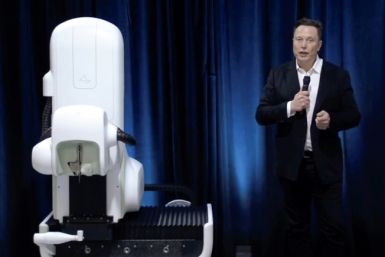Stocks around the world extended gains on Thursday while the yen slipped against the dollar after the Bank of Japan decided not to change interest rates.
The Nikkei average gained 0.1 percent on Thursday despite some weak economic data out before the open.
NTT DoCoMo Inc, Japan's biggest mobile phone carrier, said on Wednesday it is considering new pricing systems that would cut calling charges and raise handset prices.
Global stocks hit a fresh peak for a third straight session on Wednesday as worries about a credit squeeze continued to recede, while the dollar pared recent gains as investors awaited upcoming major U.S. economic data. Caution ahead of U.S. non-manufacturing numbers and retail sales in Europe due later in the day were seen keeping a lid on European markets.
Japan's Nikkei stock average is expected to move in a narrow range on Wednesday, with profit-taking likely to prevent the index from going further beyond 17,000.
Japan's Nikkei stock average rose 1.2 percent on Tuesday, clearing the 17,000 level for the first time in nearly eight weeks as gains on Wall Street and a softer yen pushed up exporters such as Sony Corp.
World stocks powered ahead on Thursday and the dollar hit another low against the euro as investors banked on more U.S. interest rate cuts and at least temporarily set aside gnawing fears about global credit.
Asian markets advanced sharply on Thursday alongside Hong Kong and Sydney and Singapore setting new intraday highs as financial and energy stocks soar.
Japanese markets mostly failed to react to the appointment of Yasuo Fukuda as leader of the Liberal Democratic Party on Sunday. The appointment opens the way for Fukuda to take over the reins of departing Prime Minister Shinzo Abe.
Japanese stocks slipped on Friday, weighed down by selling of exporters such as Canon Inc as the yen edged up against the dollar, with the Nikkei average closing down 0.6 percent.
Most Asian stocks rose on Thursday with energy stocks higher as oil held near a record peak above $80, while expectations of an U.S. rate cut next week pinned the dollar near an all-time low versus the euro.
Japanese stocks ended in negative territory on Wednesday after the shock resignation of Prime Minister Shinzo Abe, with the Nikkei average down 0.5 percent as thin trade and political uncertainty took their toll.
The Nikkei average closed 0.6 percent higher on Thursday, after hitting its lowest level in a week, as telecoms including KDDI Corp gained on a bullish brokerage report and steel stocks rose on better outlooks.
The Nikkei average fell 1.6 percent on Wednesday as property shares including Sumitomo Realty & Development fell on concern about a slowing real estate market while worries about subprime debt hurt banks.
Hitachi Construction Machinery Co Ltd is targeting 70 percent growth in sales and a doubling in profit over four years as demand for earth-moving equipment booms in China, India and Russia, its CEO said.
The Nikkei average lost 0.6 percent on Tuesday on caution ahead of a wave of U.S. economic data, while clothing company Fast Retailing Co Ltd extended its slide after announcing further acquisition plans.
Japanese stocks slid on Monday as investors wary of credit woes sold some financial stocks following Friday's rises, while an unexpected drop in capital spending data put a lid on the overall market.
Asian stock markets took a breather on Monday with Tokyo's Nikkei slipping on fresh concerns about the economy, and the yen traded in a small range in a session likely to be dulled by the U.S. Labor Day holiday.
The Nikkei rose 2.6 percent on Friday as news that President George W. Bush will outline reforms to help homeowners with subprime mortgages sparked broad-based buying, and Dell Inc's earnings lifted high-tech stocks.
Japan's Nikkei average rose 0.9 percent on Thursday as higher oil prices pushed up energy stocks and trading firms, while TDK Corp gained on its plan to buy Thai-based Magnecomp Precision Technology.
Japanese stocks hit their lowest close in a week after earlier falling by nearly 3 percent as a strong yen sparked sales of exporters such as Sony Corp after fears about the U.S. economy set off a Wall Street tumble.
Tokyo shares slipped in thin trade on Tuesday as investors watchful of currency moves sold Toyota Motor Corp and other exporters on a stronger yen, and banks and brokerage firms fell after their U.S. peers slipped the previous session.

















